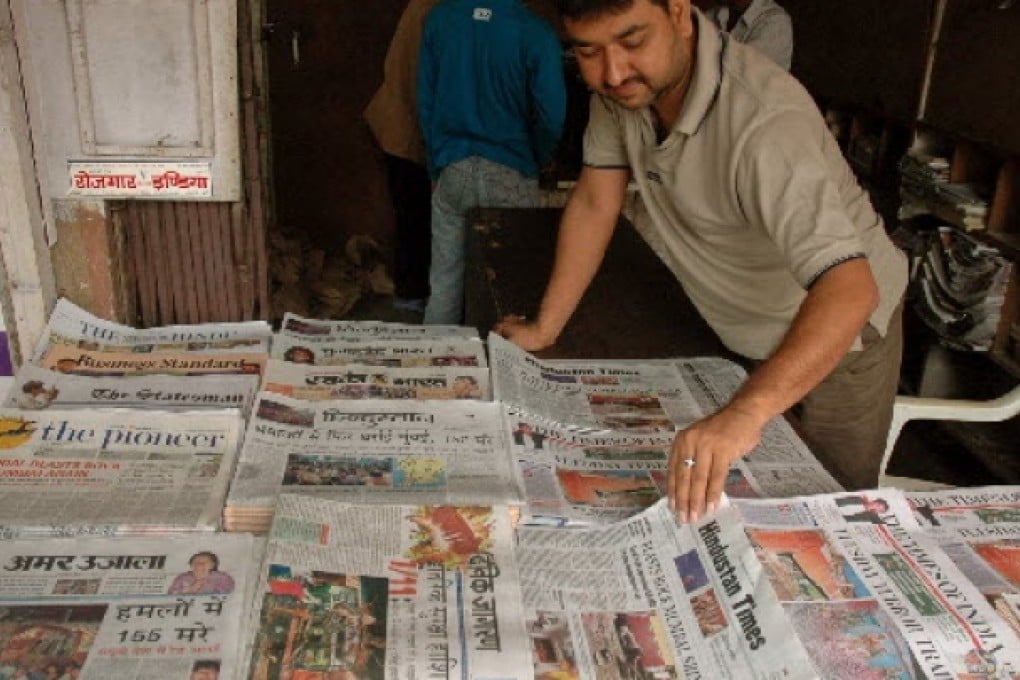Media collusion with politicians, business weakens Indian democracy
Amrit Dhillon says tough regulation is neededto stop collusion between media and politicians

An Indian television reporter was sacked this week for doing a piece on the floods that have ravaged the nation while sitting on the shoulders of a flood survivor.
In a video that went viral, the reporter is seen on the shoulders of the man, who is standing in the water and wobbling under the strain of keeping the reporter above water.
It may have been just an isolated antic by an insensitive reporter, but it comes just weeks after a parliamentary report delivered a harsh rebuke to a much deadlier and more widespread practice - the oxymoronic phenomenon of "paid news".
The report outlines what is now a well-known evil: how newspapers and television news channels take money in return for positive coverage. The money comes from business houses, individuals and politicians, particularly at election time.
India's Election Commission has detected hundreds of cases where candidates gave money to the media. In return, the newspaper or TV channel carried glowing reports on their campaigns and hyped their chances of winning. In a campaign in Punjab, rival candidates both gave money to the same paper. The next day, the paper predicted that both men were heading for victory.
Bennett & Coleman, which owns The Times of India, demolished the line between editorial and advertising many years ago. It began by asking celebrities and other rich people to pay for coverage.